Winter can transform a place. Locations that are vibrant and beautiful in summer can seem otherworldly once the sky turns grey. Nic Roeg took advantage of a wintery Venice when shooting his supernatural chiller Don’t Look Now; streets and canals usually filled with sunshine and tourists were instead eerily empty and strange.
Claire Oakley’s debut feature Make-Up also uses an off-season tourist destination for uncanny effect, in this case choosing a caravan park on the Cornish coast near St Ives in a film which is heavy on mood. It’s not the only characteristic it shares with Roeg’s classic: Make Up is also a relationship drama with supernatural hints. And the colour red is also significant.
The film starts with Ruth (Molly Windsor), an eighteen-year-old girl being dropped off at the caravan park by taxi one night, suitcase in hand. She’s come from Derby to spend the winter season working with her boyfriend Tom (Joseph Quinn), doing general maintenance and repairs. This is Tom’s third winter, but it’s the first time Ruth’s parents have let her join him.
The place is virtually deserted, with just a skeleton staff and the odd full-time guest. While Tom’s mate Kai is unwelcoming and seems to resent Ruth’s presence, she forms a friendship with Jade (Stefanie Martini) one of the other staff members. Suspicions are aroused when Ruth finds some strands of bright red hair in Tom’s bed and a lipstick kiss on his mirror. But she begins to distrust her own perceptions as fleetingly glanced events and uncanny situations lead to confusion and perhaps even a premonition of her own inner desires.
Make Up is laden with atmosphere. The setting is claustrophobic setting; rows of identical white, sterile caravans on the hillside like tombs in a graveyard engulfed in wintery misty darkness lend a peculiar and effective atmosphere. There’s an ever-present soundtrack of desolate wind and strange creaks and bangs in the caravans. And this moody backdrop contrasts well with the drab, day-to-day realities, doing the laundry, the same cheap pasta for dinner each night – it creates an odd and effective tone.
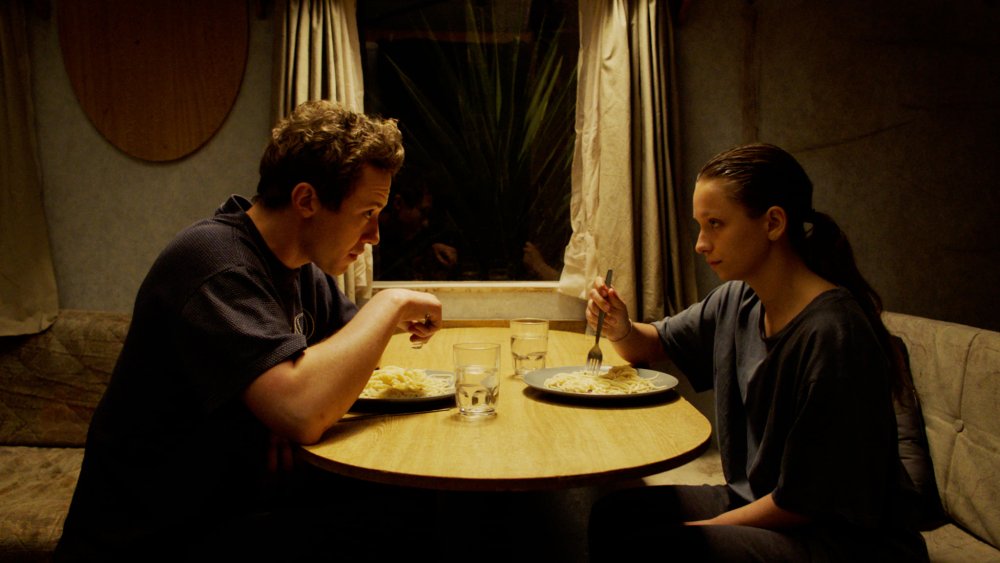
The cinematography takes full advantage of the setting. An early view of a caravan in darkness illuminated by a misty sodium streetlight halo is held in shot so it almost becomes a Polaroid still, distant but beguiling. At other times, the camera lingers on drab grey long grasses, swaying wild in the wind. It’s an impressive production, particularly as the budget was only £500,000.
There’s a thoughtful colour palette too. Tom and the other staff are dressed in blues and greys with lighting to match. By contrast, Jade, with her red / blonde hair and warm skin tone is diffused in yellows and oranges, her own caravan interior is a comforting hazy oasis. Perhaps the central use of red is a little heavy handed, the colour appears whenever Ruth feels desire, it’s a slow build from the hair on the bed, to fire extinguishers, all the way to a finale when Ruth is tangled up in red: red dress, red wig backed by a red, fireworked sky. It’s interesting to contrast it to last year’s Daniel Isn’t Real, a more energetic horror where the tone deliberately moves from blues / greens to reds, but that style is less foregrounded and is all the more effective for it.
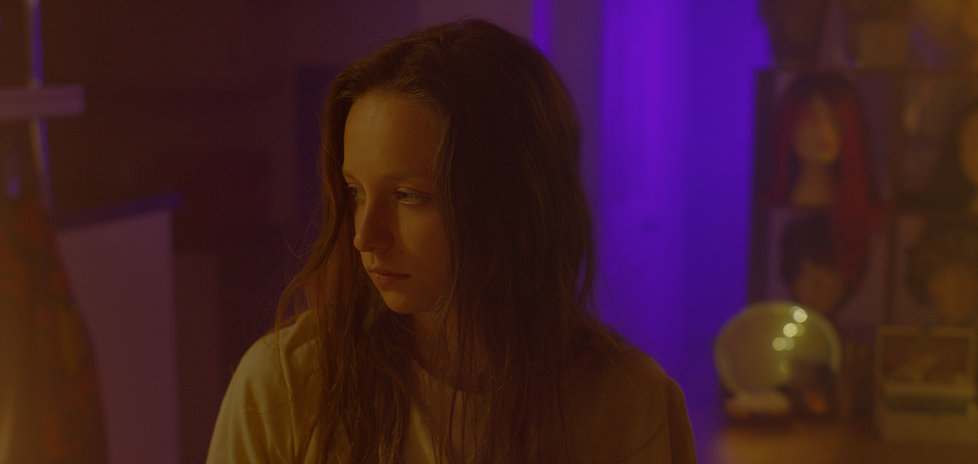
Other elements are perhaps overused – the sea, wild, inviting and dangerous is a metaphor for both a freedom from convention and Ruth’s burgeoning sexuality. We’re told Ruth hasn’t swum in the sea before, that it’s hazardous, no place for children, and the camera frequently contrasts its untamed energy with the drab, repetitive caravans. In fact water in general is equated with sexuality, with a voyeuristic shower scene making a particular impression on our protagonist.
After a slow start, the film becomes increasingly unrestrained as Ruth’s own perspective becomes heightened and confused. There’s an effective moment of mild body-horror that had many in the cinema wincing, and Oakley’s direction and editing offer effective moments that play with time, memories and self-realisation. But the film struggles to sustain and build on the brilliance of these fragments and it begins to meander.
Similarly, the soundtrack, made up of initially unsettling and atmospheric soundscapes, outstays its welcome and begins to feel a little too influenced by David Lynch’s masterful sound design.
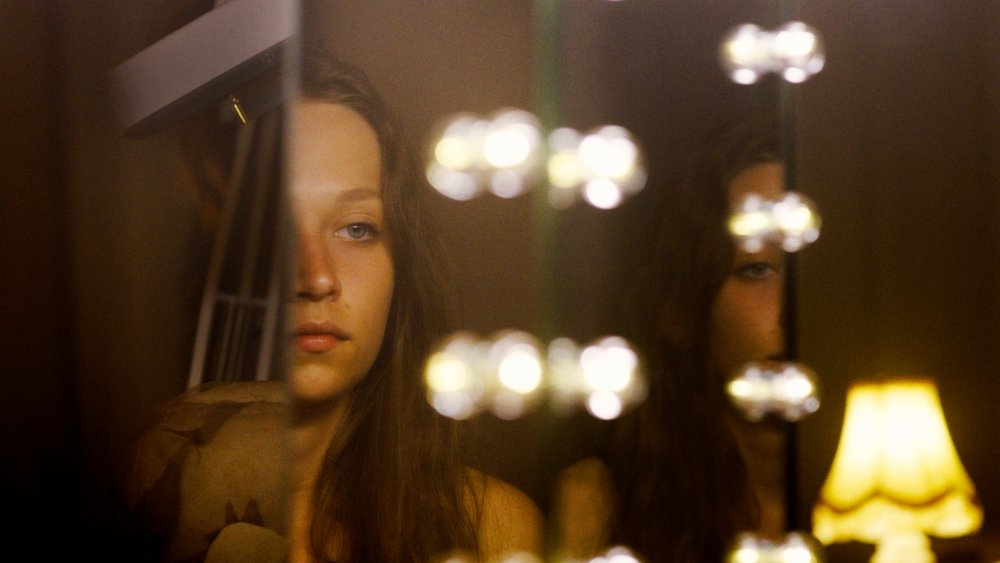
For the film’s biggest problem is a lack of plot and character development. This 85-minute feature felt overlong. Despite the intrigue and self-awakening very little actually happens. Oakley, who wrote the screenplay as well as directing, said she deliberately didn’t give Ruth a backstory. But we don’t really get to know the individuals in the present either, least of all central character Ruth who is emotionally inarticulate and withdrawn even though the film strives to express her own personal experience. Unfortunately, often the peripheral characters are more interesting than the leads – resort manager Shirley (Lisa Palfrey) is deliciously entertaining in particular – and Oakley even observed that because the supporting roles weren’t so important she could relax and have fun when creating them.
Perhaps it’s because the film has some resonance with Oakley’s own personal experience that it’s handled a little too delicately – it’s not autobiographical, but there are situations and imagery that are significant to Oakley’s own life. But whatever the reason, sadly Make Up is often reminiscent of when someone recounts their dream – fascinating to the teller, a bit weird, but also a little tedious for the listener. But given a meatier, and perhaps less personal, script Oakley’s control of tone and mood could make her a director to look out for.
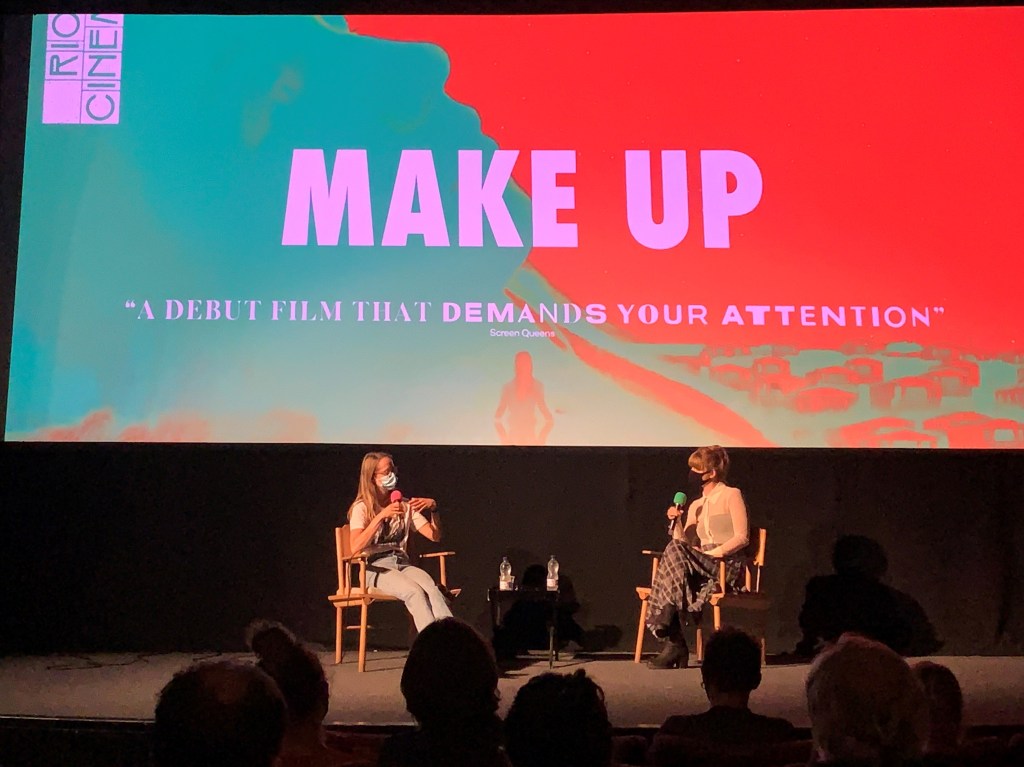
Make Up was released in UK cinemas on 31st July and is also available to stream on Curzon Home Cinema.
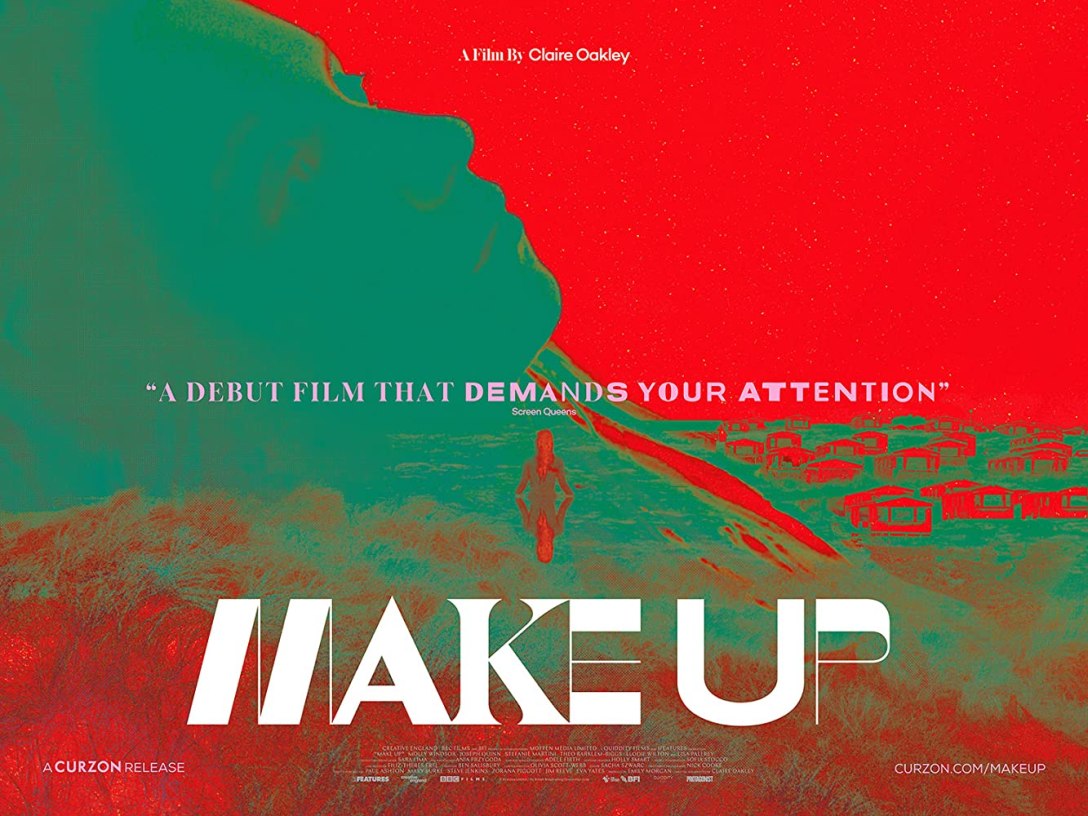
Very interesting review for Make Up. I had not considered aligning the uses of red imagery with Don’t Look Now.
LikeLiked by 1 person
Thanks, L.
LikeLike
[…] Movie review on Dave’s film blog […]
LikeLike
Your blog works very well, nice work here go to https://www.moviesandtvhits.info
LikeLike